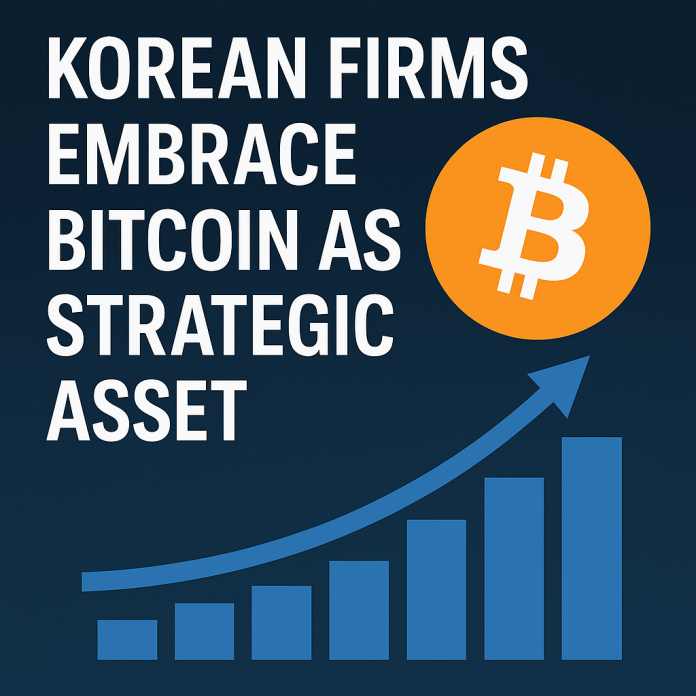
A growing number of publicly traded companies in South Korea are turning to Bitcoin as a core strategic asset, signaling a major shift in corporate treasury management. Leading this movement are BitMax, a KOSDAQ-listed firm, and K-Wave Media (KWM), a Nasdaq-listed Korean entertainment company, both of which have recently made bold investments into Bitcoin.
BitMax disclosed on May 30 that it used 40 billion KRW (approx. $30 million) from its newly issued convertible bonds to acquire additional Bitcoin, raising its total holdings to 230.26 BTC — the largest among Korean listed companies. Since March, BitMax has been steadily accumulating Bitcoin and has publicly stated its goal of becoming the “Korean version of MicroStrategy,” positioning digital assets as a foundational part of its future financial strategy.
KWM made headlines with an even more aggressive move. The company recently sold a large portion of its equity holdings to raise $500 million USD, which it announced would be used to purchase Bitcoin. Following the announcement, KWM’s stock price soared nearly 160% in a single day, reflecting intense investor enthusiasm.
Analysts have likened these moves to that of MicroStrategy, the U.S. company that became globally renowned for converting large portions of its corporate treasury into Bitcoin since 2020. Inspired by that precedent, Korean firms are now making similar bets, aiming to hedge against fiat devaluation and align with emerging financial trends.
However, not everyone is optimistic. Financial analysts warn that using convertible bonds or equity sales to fund Bitcoin purchases may expose companies to liquidity risks, particularly in the face of price volatility in the crypto market. Bitcoin’s price swings, while potentially lucrative, can also pose significant balance sheet challenges if the asset depreciates suddenly.
Despite these concerns, the tone around corporate Bitcoin holdings in Korea is rapidly changing. One financial strategist noted, “Bitcoin is no longer seen as a speculative asset—it’s increasingly viewed as a quasi-monetary reserve, akin to digital gold. Companies that move early may gain long-term strategic advantages.”
As the lines between traditional and digital assets continue to blur, these Korean companies are not just making investments—they’re making statements. In an era where confidence in fiat is eroding and institutional interest in crypto is rising, buying Bitcoin may well be the new corporate signal of strength.






